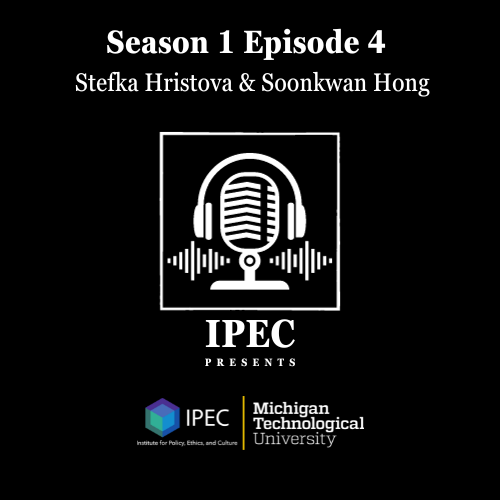
The fourth episode of IPEC’s monthly podcast is now streaming on Spotify and Apple Podcasts! Our guests, IPEC Director Stefka Hristova and Associate Director Soonkwan Hong discuss how their research relationship has developed over time and spanned university service-related projects, publication collaborations, and research development. Taking a critical perspective on AI and algorithms, we dive deep into the power relations at play in today’s techno cultural environment. Join us for a riveting discussion and learn how, as a general AI user, we can better educate and protect ourselves when interacting with these black box technologies.
